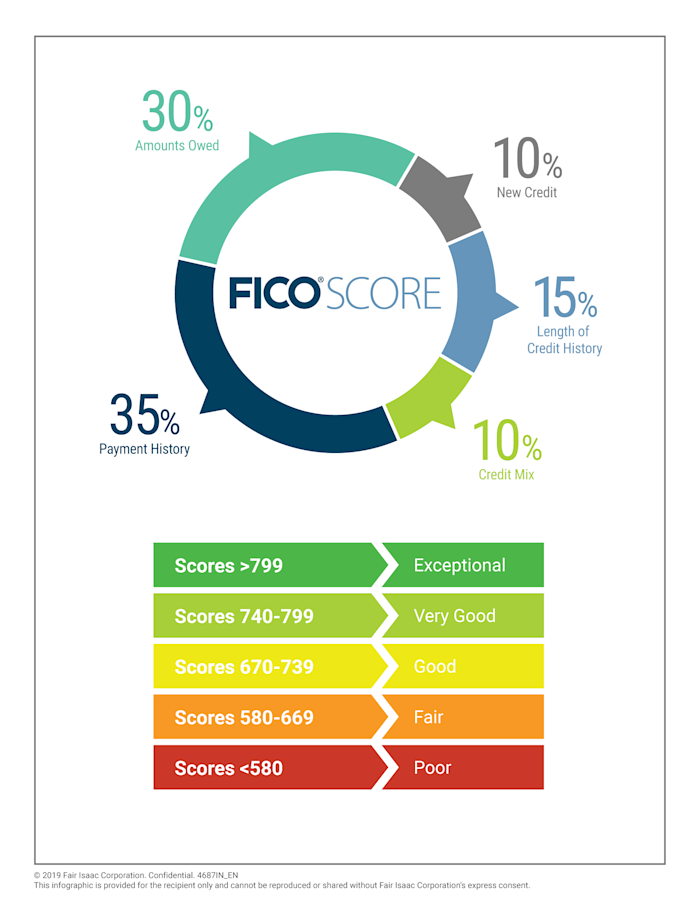Loading
FICO® Scores
Understanding your FICO® Scores can help you better understand your credit risk and allow you to more responsibly manage your financial health. A good FICO® Score means better financial options for you.
What are FICO® Scores?
According to credit industry analysts, the credit scores most widely used in lending decisions are FICO® Scores, the credit scores created by FICO, formerly known as Fair Isaac® Corporation. Lenders can request FICO® Scores from all three major consumer reporting agencies (CRAs), and use them to help them make credit decisions. FICO develops FICO® Scores based solely on information in consumer credit files compiled and maintained by the three major CRAs.
Understanding your FICO® Score can help you better understand your credit risk and allow you to more responsibly manage your financial health.
A good FICO® Score means better financial options for you.
Useful links

What is a good FICO® Score?
The minimum credit score needed to qualify for a particular loan program and/or Annual Percentage Rate (APR) is known as the “score cutoff”. Since the score cutoff varies by lender and loan product, it's hard to say what a good FICO® Score is outside the context of a particular lending decision. For example, one mortgage lender may have a score cutoff (or minimum credit score) of 680 for a 30 year fixed rate loan with a 4% APR and another lender may have a score cutoff of 720 for the same loan product and APR. A licensed loan originator should be able to advise you regarding specific score cutoffs for the various loan programs and APRs.
The chart below provides a breakdown of ranges for FICO® Scores found across the U.S. consumer population. It provides general guidance on what a particular FICO® Score represents. Again, each lender has its own credit risk standards.
Score range | Rating | What FICO® Scores in this range mean |
|---|---|---|
800 or Higher | Exceptional | Well above the average score of U.S. consumers Demonstrates to lenders that the consumer is an exceptional borrower |
740 to 799 | Very Good | Above the average of U.S. consumers Demonstrates to lenders that the consumer is a very dependable borrower |
670 to 739 | Good | Near or slightly above the average of U.S. consumers Most lenders consider this a good score |
580 to 669 | Fair | Below the average of U.S. consumers Some lenders will approve loans with this score |
Lower than 580 | Poor | Well below the average of U.S. consumers Demonstrates to lenders that the consumer is a risky borrower |
FAQs
View allFICO is a registered trademark of Fair Isaac Corporation in the United States and other countries.
TransUnion is a registered trademark of Trans Union LLC
Vanderbilt, TransUnion and FICO are not credit repair organizations as defined under federal or state law, including the Credit Repair Organizations Act. Vanderbilt and FICO do not provide “credit repair” services or advice or assistance regarding “rebuilding” or “improving” your credit record, credit history or credit rating.